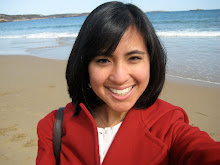Dietetic Internship Rotation #2: Radiation Oncology Clinic
The goal of this rotation is to work with the dietitian and become competent in the nutritional management of patients with head and neck cancers. Patients receiving chemotherapy or radiation have compromised nutritional status. They have increased energy needs due to disease and wound healing. This is usually combined with decreased appetite leading to weight loss, fat los, and muscle loss (cancer cachexia). Radiation to the head and neck often causes swallowing difficulties and taste changes. Enteral feeding (liquid food sent into the stomach or intestine through a tube) requires the expertise of a dietitian.
The goal of this rotation is to work with the dietitian and become competent in the nutritional management of patients with head and neck cancers. Patients receiving chemotherapy or radiation have compromised nutritional status. They have increased energy needs due to disease and wound healing. This is usually combined with decreased appetite leading to weight loss, fat los, and muscle loss (cancer cachexia). Radiation to the head and neck often causes swallowing difficulties and taste changes. Enteral feeding (liquid food sent into the stomach or intestine through a tube) requires the expertise of a dietitian.
September 23, 30, and October 7.
This brief rotation was filled with "firsts!"I wore my white lab coat for the first time.
I conducted my first diet recall.
I wrote my first entry in the medical chart.
I witnessed my first nutrition assessment with a translator.
I learned:
Always read the patient's medical chart before you go into the room for a nutrition assessment. Try find out what the patient's concerns are, and how you can address those concerns. Ask the patient why they are here to see you. It is a horrible feeling to not know why you are talking to a patient, or if your words are relevant.
Diet recall. (A diet recall is a technique used to evaluate what a person normally eats and drinks in an average day.) I remember my second diet recall. The patient casually stated that he drank 1 gallon of milk per day. Since I don't like milk, this was a staggering thought. But a professional must keep a non-judgmental attitude. Remember to ask portion sizes and use your hands and palms to estimate ounces. Ask about the frequency of meals. Detailed is better, but avoid neurotic.
As a newbie, I'll share a memorable learning experience. The dietitian and I saw a patient who had just started chemotherapy treatment. She was not eating and needed to increase her caloric intake. The dietitian left the room, so I was left alone with the patient. We were talking, and I started suggesting ways to increase calories. You know, the usual: drink whole or 1% milk instead of skim milk, don't hesitate with the spreads, switch from smartbalance to butter, try calorically dense foods like nuts, eat small frequent meals. Later I learned that she is a fitness instructor. I bet half of my advice went in one ear and out the other. Lesson: know your congregation before you start preaching.

0 comments:
Post a Comment